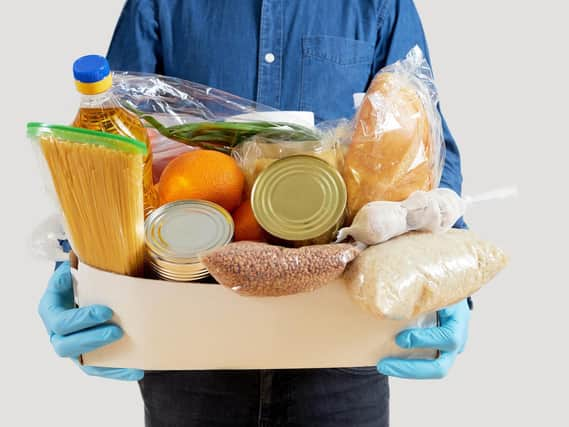Why food banks have become an integral part of social care system - Bird Lovegod


Food poverty already existed in Sheffield, the pandemic heightened it, and heightened our awareness of it.
Foodbanks in Sheffield have reached such a scale that they are now an integral part of the social care system.
Advertisement
Hide AdAdvertisement
Hide AdRather than working to eliminate food banks, as some people think we should, I’m of the opinion we should scale them up, formalise and normalise them.
Call them ‘free shops’ and they are what they are. A logical way to reduce food waste whilst providing for people.
When the social distancing restrictions are lifted why not have free food shops inside churches, given that that’s where most of the foodbanks currently operate from, staffed by volunteers. Feeding the hungry. It’s a basic instruction of Jesus.
Covid has shown us how our society is structured into disconnected demographics. Poor people live in one place, wealthier people in another. Poor people have other poor people in their social networks, wealthier people, the same.
Advertisement
Hide AdAdvertisement
Hide AdGeographically, they can be very close, a few hundred metres between them, but in terms of resources they are miles apart. Or perhaps decades apart, due to the digital divide. Covid has caused a surge in digitisation, bringing it forwards by five years in five months, everything and everyone is going online ASAP.
Here’s an experiment for you. Print 200 basic postcards offering free food parcels. On 100, put an email address and website to claim the food.
On the other 100, a text and phone number. Put the 200 cards through doors in impoverished areas. How many texts will you get? About a dozen. How many emails or online requests? The exact number will be zero. Why? Because they have no internet access. No device, and no wifi. No matter what you offer them, they can’t access it.
The haves and the have nots. Two groups, separated by a divide that renders them both invisible and blind to one another.
Advertisement
Hide AdAdvertisement
Hide AdWhat’s required is the creation of systems that vector these two groups, connecting them. Bearing in mind the ‘haves’ are best connected digitally but the ‘have nots’ need a different approach.
One of these recently launched solutions is LTFK.co.uk , which stands for LapTopsForKids. It’s a collaboration inviting businesses and individuals to donate used digital devices, laptops and desktop computers and tablets especially, to be given to children from disadvantaged backgrounds.
The devices are wiped, of course, physically and digitally. The project is run by the super successful company WANDisco Plc, and supported by many equally generous and socially minded companies and partners.
Computers are not a luxury, any more than a television, or a cooker, or washing machine. They are fundamental to our civilisation, our society.
And there’s enough to go around, easily.
Advertisement
Hide AdAdvertisement
Hide AdThere’s probably more unwanted laptops and desktops in Yorkshire than there are people who need them. Let’s dig them out and get them donated. The best way to recycle something is to give it to someone who needs it.
By Bird Lovegod - Independent Fintech Consultant
Support The Yorkshire Post and become a subscriber today. Your subscription will help us to continue to bring quality news to the people of Yorkshire. In return, you'll see fewer ads on site, get free access to our app and receive exclusive members-only offers. Click here to subscribe.
Comment Guidelines
National World encourages reader discussion on our stories. User feedback, insights and back-and-forth exchanges add a rich layer of context to reporting. Please review our Community Guidelines before commenting.